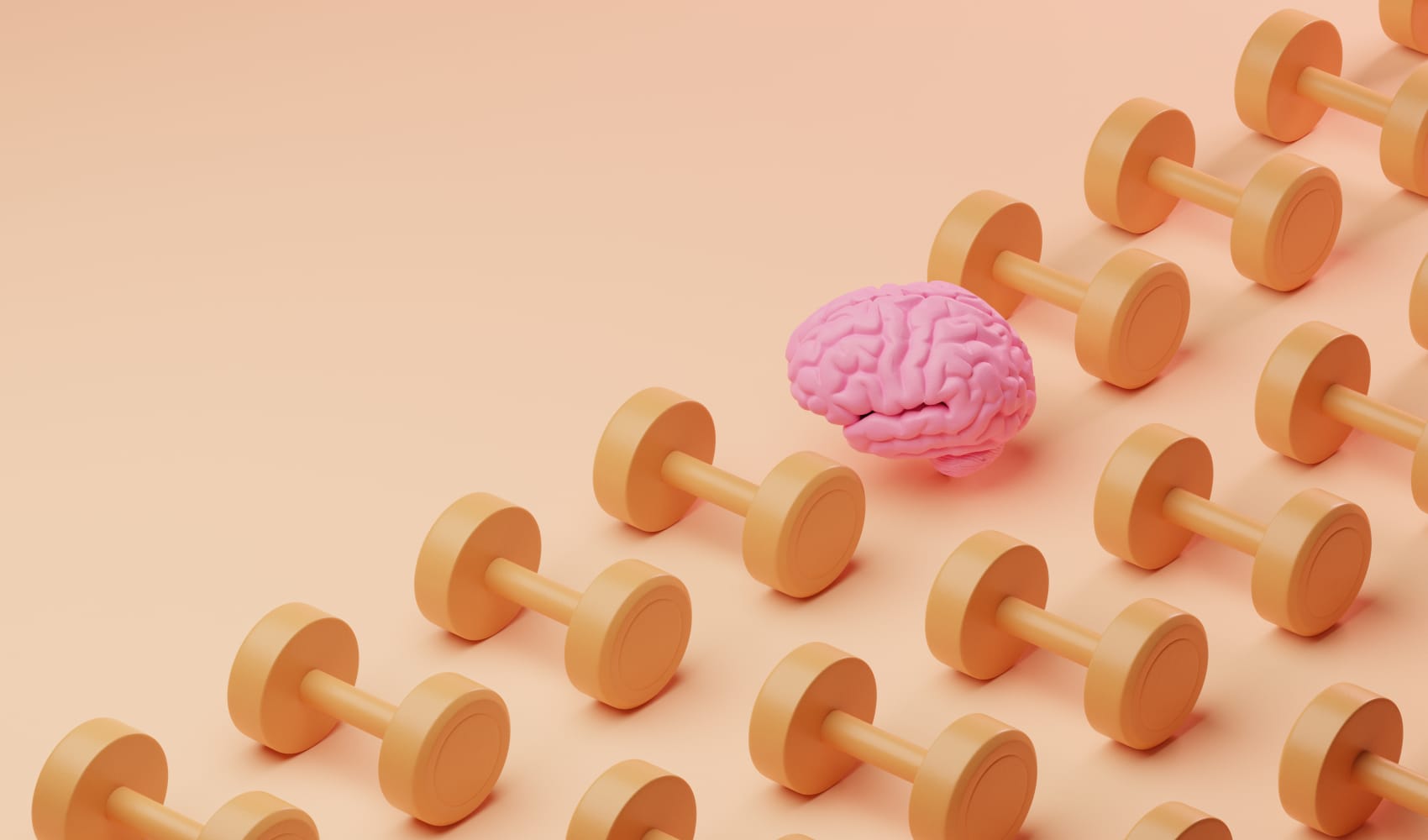Lower Dementia Risk: Brain Experts' Top 3 Tips!
Unlock a Healthier Brain: 3 Expert Tips to Beat Dementia, Stroke, and Depression
Introduction: Your Brain's Best Defense
Imagine a future where you're mentally sharp, emotionally balanced, and physically resilient. Sounds good, right? The fantastic news is, it's more attainable than you might think! A groundbreaking study published in the Journal of Neurology, Neurosurgery & Psychiatry sheds light on simple, yet powerful lifestyle choices that can significantly lower your risk of developing dementia, stroke, and depression later in life. Think of it as building a fortress around your brain, protecting it from potential threats. As Dr. Sanjula Singh, lead author of the study and a principal investigator at the Brain Care Labs at Massachusetts General Hospital, points out, “At least 60% of stroke, 40% of dementia and 35% of late-life depression are attributable to modifiable risk factors.” So, what are these game-changing strategies? Let's dive in!
Tip #1: Move Your Body, Boost Your Brain
The Power of Physical Activity
You probably know that exercise is good for your heart and waistline, but did you realize it's also a superstar for your brain? Physical activity isn't just about fitting into your favorite jeans; it's about nourishing your neural pathways and keeping your mind sharp. Think of it as giving your brain a refreshing spa day. Regular exercise increases blood flow to the brain, which is crucial for delivering oxygen and nutrients that keep brain cells healthy and functioning optimally.
How Much is Enough?
You don't need to become a marathon runner to reap the brain-boosting benefits of exercise. Aim for at least 150 minutes of moderate-intensity aerobic exercise per week, such as brisk walking, cycling, or swimming. That breaks down to just 30 minutes, five days a week. Don't have 30 minutes all at once? Break it up into smaller chunks – three 10-minute walks throughout the day can be just as effective. Remember, any movement is better than none!
Make it Fun, Make it Stick
The key to sticking with an exercise routine is to find activities you enjoy. If you dread going to the gym, explore other options. Dance classes, hiking, gardening, or even playing with your kids or grandkids can all count as exercise. The more you enjoy it, the more likely you are to make it a habit. Consider finding a workout buddy for extra motivation and accountability.
Tip #2: Nourish Your Mind with a Brain-Healthy Diet
The Food-Brain Connection
What you eat has a profound impact on your brain health. Just like a car needs the right fuel to run smoothly, your brain needs the right nutrients to function at its best. A diet rich in processed foods, sugary drinks, and unhealthy fats can wreak havoc on your brain, increasing your risk of cognitive decline and mood disorders. On the other hand, a diet packed with fruits, vegetables, whole grains, and lean protein can protect and nourish your brain.
Embrace the Mediterranean Diet
The Mediterranean diet is widely regarded as one of the best diets for brain health. It's rich in fruits, vegetables, whole grains, legumes, nuts, seeds, and olive oil. It also includes moderate amounts of fish and poultry, and limits red meat and processed foods. This diet is packed with antioxidants, healthy fats, and other nutrients that support brain function and protect against inflammation, a major contributor to brain aging.
Foods to Favor, Foods to Avoid
Foods to favor include:
- Leafy greens like spinach and kale
- Berries like blueberries and strawberries
- Fatty fish like salmon and tuna
- Nuts and seeds like walnuts and flaxseeds
- Olive oil
- Avocados
Foods to avoid include:
- Processed foods like chips and cookies
- Sugary drinks like soda and juice
- Red meat
- Saturated and trans fats
Hydrate, Hydrate, Hydrate!
Don't forget the importance of hydration! Your brain is about 75% water, so dehydration can significantly impair cognitive function. Aim to drink at least eight glasses of water per day. Carry a water bottle with you and sip on it throughout the day. You can also get fluids from fruits, vegetables, and other healthy beverages.
Tip #3: Challenge Your Brain, Sharpen Your Mind
Use It or Lose It
Just like your muscles, your brain needs to be challenged to stay strong and healthy. Engaging in mentally stimulating activities helps to build new neural connections and strengthen existing ones, making your brain more resilient to age-related decline. Think of it as giving your brain a regular workout.
Embrace Lifelong Learning
Lifelong learning is one of the best ways to keep your brain sharp. Take a class, learn a new language, or pick up a new hobby. The more you challenge yourself to learn new things, the more you'll stimulate your brain and protect it from cognitive decline.
Engage in Mentally Stimulating Activities
There are countless ways to engage your brain. Read books, solve puzzles, play strategy games, or participate in stimulating conversations. Even something as simple as learning a new recipe or trying a different route to work can challenge your brain and keep it active. Social interaction is also crucial for brain health. Spend time with friends and family, volunteer in your community, or join a club. Social connections provide stimulation and support that can help protect against cognitive decline.
Prioritize Sleep
Sleep is essential for brain health. During sleep, your brain consolidates memories, clears out toxins, and repairs itself. Lack of sleep can impair cognitive function, increase your risk of mood disorders, and even contribute to the development of dementia. Aim for at least 7-8 hours of quality sleep per night. Establish a regular sleep schedule, create a relaxing bedtime routine, and make sure your bedroom is dark, quiet, and cool.
Beyond the Basics: Additional Brain-Boosting Strategies
Manage Stress
Chronic stress can have a devastating impact on your brain. It can damage brain cells, impair cognitive function, and increase your risk of depression and anxiety. Find healthy ways to manage stress, such as meditation, yoga, spending time in nature, or talking to a therapist.
Quit Smoking
Smoking is terrible for your overall health, and it's especially harmful to your brain. Smoking damages blood vessels, reduces blood flow to the brain, and increases your risk of stroke and dementia. If you smoke, quitting is one of the best things you can do for your brain health.
Limit Alcohol Consumption
Excessive alcohol consumption can damage brain cells and impair cognitive function. If you drink alcohol, do so in moderation. Moderate drinking is defined as up to one drink per day for women and up to two drinks per day for men.
Manage Blood Pressure and Cholesterol
High blood pressure and high cholesterol can damage blood vessels and increase your risk of stroke and dementia. Work with your doctor to manage these conditions through lifestyle changes and medication, if necessary.
Get Regular Checkups
Regular checkups with your doctor are essential for monitoring your overall health and identifying potential risk factors for brain disorders. Early detection and treatment can significantly improve your chances of staving off dementia, stroke, and depression.
The Power of Prevention
It's never too early or too late to start taking care of your brain. Even small changes to your lifestyle can make a big difference in your long-term brain health. By incorporating these tips into your daily routine, you can build a strong and resilient brain that will serve you well for years to come. Remember, your brain is your most valuable asset, so invest in its health and well-being.
Conclusion: Invest in Your Future Brain
So, there you have it – three powerful tips from brain health experts to help you lower your risk of dementia, stroke, and depression, all at the same time. By embracing physical activity, nourishing your mind with a brain-healthy diet, and challenging your brain with mentally stimulating activities, you can build a fortress around your brain and protect it from potential threats. Remember, these aren't just suggestions; they're investments in your future cognitive and emotional well-being. Take control of your brain health today and unlock a brighter, sharper, and more fulfilling future.
Frequently Asked Questions (FAQs)
1. How early should I start implementing these brain health tips?
It's never too early! Ideally, you should start incorporating these practices into your lifestyle as early as possible. While it's beneficial to start young, it's important to remember that making positive changes at any age can have a significant impact on your brain health.
2. What if I have a family history of dementia, stroke, or depression?
Having a family history increases your risk, but it doesn't guarantee you'll develop these conditions. Lifestyle modifications can still play a crucial role in mitigating your risk. Focus on implementing the tips mentioned above, and discuss your concerns with your doctor. They can provide personalized recommendations and monitor your health closely.
3. Are there any specific supplements that can help with brain health?
While a balanced diet is the foundation of brain health, some supplements may offer additional benefits. Omega-3 fatty acids, vitamin D, and B vitamins are often recommended. However, it's essential to consult with your doctor or a registered dietitian before starting any new supplements to ensure they're appropriate for you and won't interact with any medications you're taking.
4. How can I stay motivated to stick with these lifestyle changes?
Motivation can wane over time, so it's crucial to find strategies to stay on track. Set realistic goals, celebrate your successes, and find an accountability partner. Make it fun by choosing activities you enjoy and incorporating them into your daily routine. Remember why you started – to protect your brain health and enjoy a brighter future.
5. Can these tips help even if I already have mild cognitive impairment?
Absolutely! Even if you're already experiencing some cognitive decline, these lifestyle changes can still be beneficial. They may help slow the progression of the condition and improve your overall quality of life. Talk to your doctor about a comprehensive treatment plan that includes lifestyle modifications, cognitive training, and other therapies as needed.

